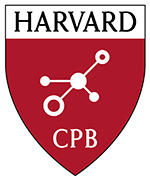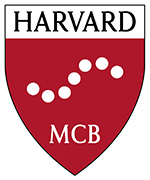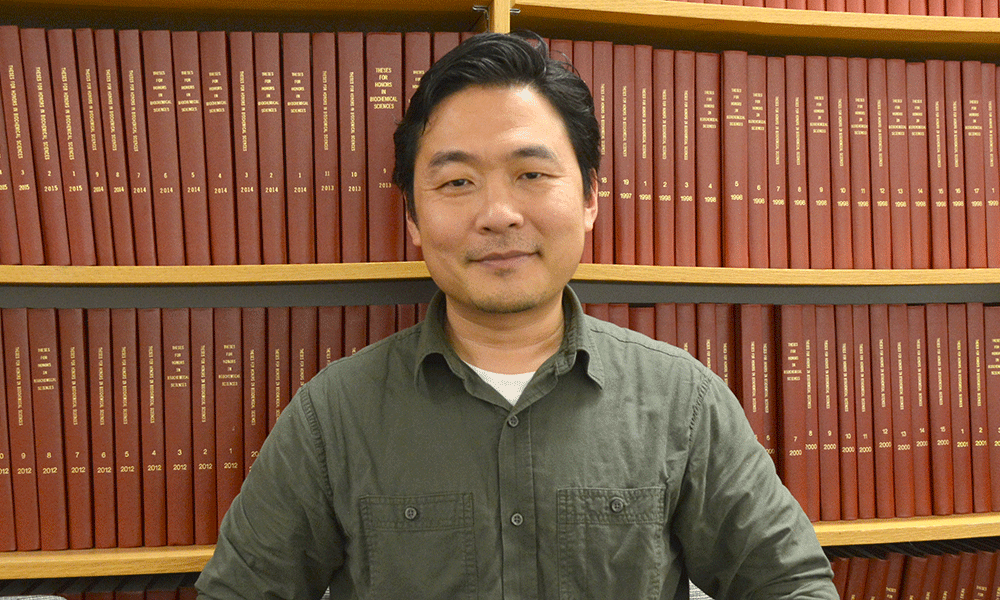Dominic Mao, advisor for two of Harvard’s life sciences concentrations (Molecular and Cellular Biology and Chemical and Physical Biology) and MCB lecturer, spent part of his summer in an uncommon setting for most Harvard educators: Imphal, India. A city of under 300,000, Imphal is the capital of Manipur, one of the northeastern states of India, which has been under political conflict for many years. Though his parents are Chinese, Mao grew up in Imphal until he was 16. His goal this summer? Bringing some of his knowledge and experience from Harvard back home, to students and teachers who could benefit from his perspective.
“For an educator, Harvard is Christmas every day,” said Mao. “And even a fraction of the resources, if it was made available to [Imphal], would have a huge impact.”
For Mao, it was never a consideration to take it easy in the slower summer months. His passion is teaching; and he strives to be for others what the influential mentors who guided his academic work were for him. He considers any opportunity to make the road to a STEM career smoother for students worth taking.
Mao’s own path from Imphal to Harvard took several detours. After moving across India to earn his undergraduate and master’s degrees in biochemistry, he spent long days laboriously running tests in a diagnostic lab.
“I didn’t enjoy the work too much, and there wasn’t even a monetary motivation,” he said. “Around that time I was invited to play in a band. They had some gigs and they wanted me to fill in.”
After three years of playing with his band, giving music lessons, and teaching high school science, Mao applied to grad school, and found himself immigrating to the United States to begin a PhD at the University of Cincinnati.
His first research project was in a lab studying a pneumonia-causing pathogen. Like many young scientists, Mao was intrigued by the idea of using science to cure disease. After switching labs, however, his entire scientific worldview began to change.
“It’s like art for the sake of art,” Mao said. “I started grad school thinking about science aimed at curing diseases, but quickly discovered the joys of science for the sake of knowing – exploratory science.”
But when Mao came close to finishing his thesis and researching next steps, he came across a posting with MCB’s Matthew Meselson, co-author of the famous Meselson–Stahl experiment in DNA replication.
“I applied for it, and I get a call on my cell phone and it’s Matt,” said Mao. “And of course, during my undergrad I read about his experiment; the most beautiful experiment in biology. So there was this awe factor of course. I didn’t expect him to just pick up the phone and call me to talk science.”
At the end of an in-person interview, Meselson told Mao that the position was his if he wanted it. At the same time, he warned Mao that his lab group was small, and advised Mao to consider joining a larger, faster-paced lab where he would have more chances to publish. His advice had the opposite effect – Mao was impressed by Meselson’s frankness – and he knew that Meselson was the mentor he was waiting for.
Meselson agreed to write teaching responsibilities into Mao’s offer letter, making his split duties official. For Mao, the decision to make teaching a large part of his career had already been made.
Throughout his time at the University of Cincinnati and with Meselson, Mao reflected on what would be the perfect ratio of teaching versus research for him. It was at Harvard that he finally came to the conclusion that teaching would outweigh research in his career plans.
“I realized that, if I don’t have a scientific question that keeps me awake at night, I am not going to be in the pool of applicants that are going to R1 (highest research activity) institutions. because I’m fine with a much slower pace of research, where research is used for education purposes and to inspire students about discovery and what I’m passionate about is education,” he said.
As he was wrapping up his postdoctoral work with Meselson in 2015, Harvard was not quite ready to see him go. MCB’s new scientific director, Polina Kehayova, convinced him to throw his hat in the ring for the position of preceptor.
“The way that she described it, I thought of it as a teaching post-doc, which was exactly what I needed,” Mao said.
As a preceptor, Mao worked with MCB professors Alex Schier and Vlad Denic developing the gateway course to the CPB and MCB concentrations, MCB60, which he still teaches.
“Dominic is passionate about teaching science as a process rather than a series of facts,” said MCB professor Rachelle Gaudet. “In MCB 60, our gateway course which Dominic teaches, students learn how to design experiments and interpret data, to prepare them for a lifetime of learning in the sciences.”
After two years, Mao transitioned to a new position as the Assistant Director of Undergraduate Studies for the Department, advising students from the undergraduate MCB and CPB concentrations.
“I’ve come to realize that throughout my journey, from one of the poorest parts of India to here, there have been point people that were really good mentors. That’s all you need,” he said. “Just people who cared, right? I thought, why don’t I start some kind of education outreach program there.”
In developing his proposal, Mao drew inspiration from several programs at Harvard. Basing his proposal on other successful programs, Mao decided that getting Harvard students involved in mentoring younger students might be the most empowering form of educational outreach.
“I thought it was a great idea, because these students, they need a source of inspiration and they need the exposure,” he said.
So, this summer, Mao jetted across the world back to his native India for the first time in 12 years to begin building the foundations of his vision.
In this trial run, Mao convened high school teachers from across the state and facilitated discussions about pedagogy and mentorship, led students in active learning exercises, and presented his vision at local universities. The goal, he said, was to emphasize the importance of higher education in opening opportunities for the future.
“I packaged my scientific training and the science narrative into a more general storytelling,” Mao said. “I talked about the application, how teaching and mentoring is an essential component of scientific training, and how I discovered my passion for teaching.”
“Dominic is passionate about the importance of science education for everybody, not just those fortunate enough to be at Harvard,” said CCB and Physics professor and co-head tutor for CPB Adam Cohen. “The students in Imphal are fortunate to benefit from the same thoughtful guidance that Dominic brings to his interactions with Harvard students every day!”
Mao’s vision for an expanded program was realized in fall 2018 when Harvard’s South Asia Institute (SAI) agreed to offer full support for the Imphal project. Now called the Program for Scientifically Inspired Leadership (PSIL) with professor Venki Murthy as advisor, Mao will be taking Harvard students to serve as teachers in his hometown in January 2019. There the Harvard students can teach and encourage the Imphal students towards a career in STEM.
“Just trying to tell people there that, if you bring yourself up to a certain level of proficiency, it is very easy to open doors,” Mao said. “I see things from the perspective of the people over there, where if you read about a scientist who made an important contribution, it seems like that person is inaccessible. But then I told the story of Matt giving me a call on my cell phone, and the students would come to a spark of realization: ‘Oh, the activation energy barrier is not too high.’”
Besides encouraging students to pursue science, Mao believes in education as the strongest force for providing long-term solutions in conflict regions. He will continue to develop contacts both here and in India, with the hope that the program can become self-sustaining. He found local business people who are willing to help fund his program, and he is talking to the state government about sponsorship.
“Dominic has infused so much energy and fresh ideas into his current position [at Harvard],” said MCB professor Vlad Denic. “I am still amazed, however, that [he] has found the time to go back to his underprivileged roots and give back his expertise and invaluable experiences gained from educating Harvard students.”
At Harvard, Mao advises about 200 Harvard undergraduates and is the co-instructor for MCB 60. Among his primary roles, he helps students navigate independent research they carry out at various Harvard-affiliate labs and guides them through the scientific writing process. He is also working to refine his own courses, and to fine tune discovery-based lab work as part of undergraduate courses.
“Tweaking the lab, all of that, is something that really excites me,” he said. “It’s like if a student has a misconception, where did that come from, what could I have said differently that would have prevented that? Those are the things that really drive me. People call it scientific teaching. Essentially, you apply the same rigor of science to your teaching. You look at the data to inform you about what works – keep what works and throw out what does not. Your teaching has to be informed by evidence.”
“These are the things that keep me up at night.”
by Mary Parker




